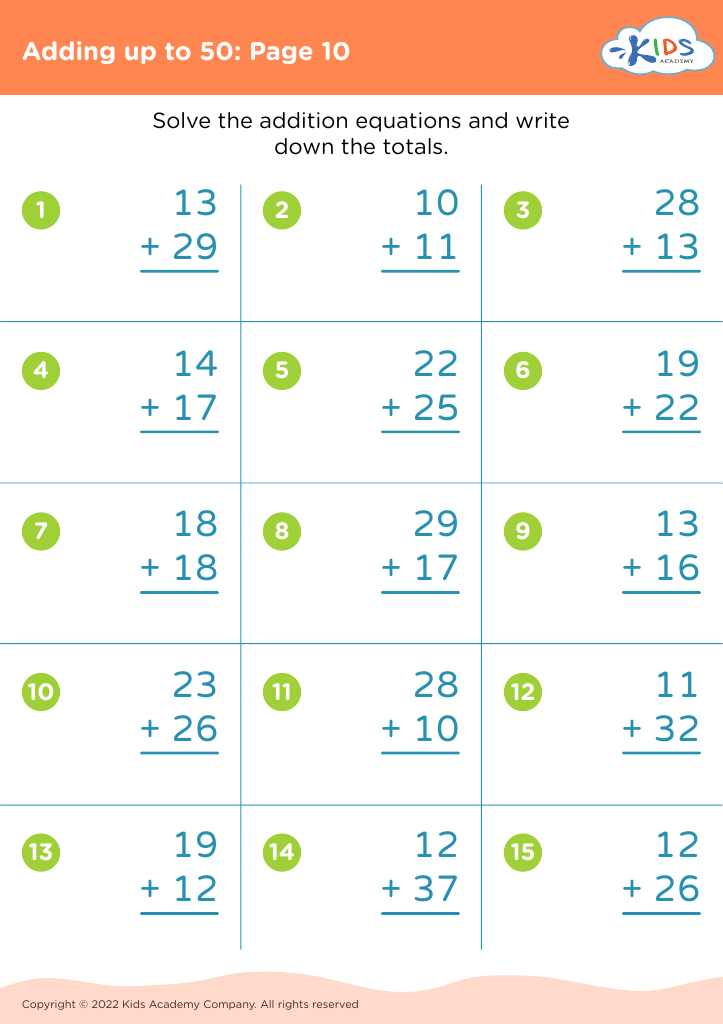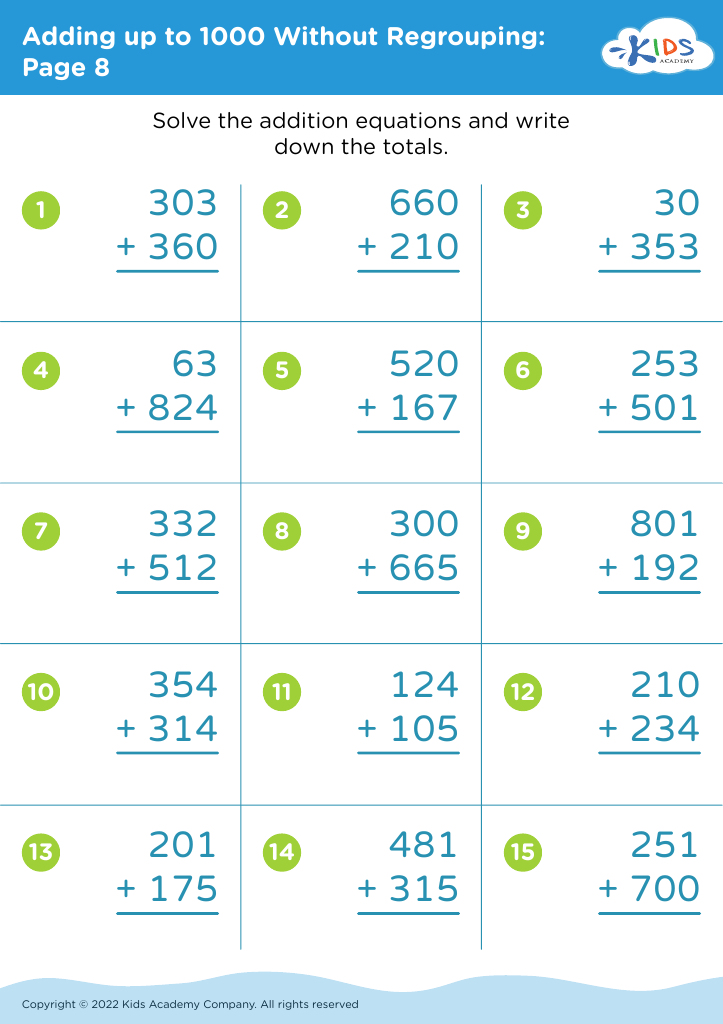Practice summarization Worksheets for Kids
2 filtered results
-
From - To
Question/Answer
What are some effective activities to train students’ Practice summarization skill when teaching them about Adding up to 50 Misc?
To train students in summarization skills while teaching adding up to 50, incorporate activities like: 1. Group story problems where students solve and then summarize the steps taken. 2. Peer teaching, where students explain addition strategies to classmates in their own words. 3. Creating word problems based on addition facts and summarizing the solution process. 4.
How to test a Grade 2 student’s Practice summarization skills?
To test a Grade 2 student's practice summarization skills, provide them with a short, simple story or passage. Ask them to read it and then verbally or in writing, explain the main idea and key details in a few sentences. This exercise will help assess their ability to understand, distill, and communicate the essential information from the text.
How does the mastery of the Practice summarization skill affect a student's performance at an early age?
The mastery of the Practice Summarization skill at an early age significantly enhances a student's academic performance by improving reading comprehension, critical thinking, and writing abilities. It fosters the ability to identify key ideas and distill complex information, which supports learning across various subjects. This skill also aids in memory retention and effective study habits, contributing to overall academic success.














